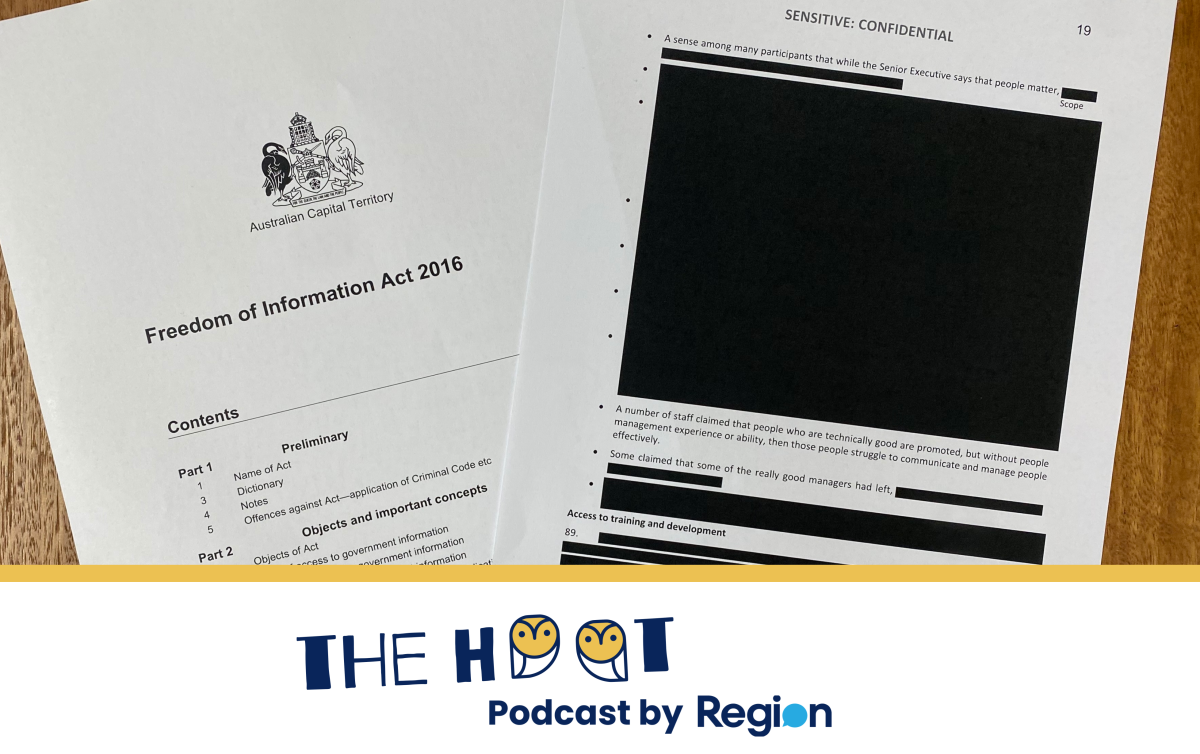
Time for the ‘black highlighter’. Welcome to FOI in the ACT. Image: Claire Fenwicke.
The Hoot is here with debate about matters of the moment, including the legal principle you may never have heard of that makes all the difference when it comes to criminal sentencing and whether we are getting larger or are aeroplane seats just getting smaller (spoiler alert: we need to hit the treadmill).
In this episode, Claire Fenwicke once again takes a seat opposite David Murtagh, starting with a discussion on whether our public servants are applying the ACT’s Freedom of Information laws appropriately.
Listen on other platforms:
An ACT Health FOI application decision was recently varied by the ACT Ombudsman on appeal, finding that while the directorate hadn’t intended to redact certain material based on reputational harm, that’s in fact, what happened.
Turns out, Health was happy to release the good news but wanted the hide the bad.
Overall, the ACT Ombudsman isn’t concerned the law isn’t being applied properly but does think agencies could do better in weighing up public interest in favour of disclosure rather than pulling out the ‘black highlighter’.
David thinks a bit of shame needs to be injected into the public sector because if they conduct themselves to the highest standard, what do they have to fear from Freedom of Information requests?
The we turn to the sad tale of Slinky, the dachshund found by RSPCA Inspectors in such a malnourished state a vet determined he wouldn’t have lasted another week, which entered the courts.
The owner received no conviction, no punishment and Slinky was returned to his owners – leaving RSPCA Inspectors calling on courts to apply the penalties available to them.
This exposes bigger questions about justice in the ACT.
Sentencing practices in the ACT have long been a sore point, but being an on-and-off court reporter, Claire Fenwicke has seen more than most about what happens inside a courtroom. So, what is taken into consideration when someone is being sentenced for a crime?
And Andrew McLaughlin reported on a study out of South Australia, which has concerningly found that as we get older, we gain more weight (no real surprise there), but public transport and airline seating aren’t keeping up with our upping body sizes (especially the ‘fuscular’ among us, like David).
This poses a safety risk, but should seats be made larger or should people with different body frames pay different rates?
The Hoot appears every week on Riotact and wherever you get your podcasts, including Apple and Spotify. Have a listen, tell us what you think and rate us.














